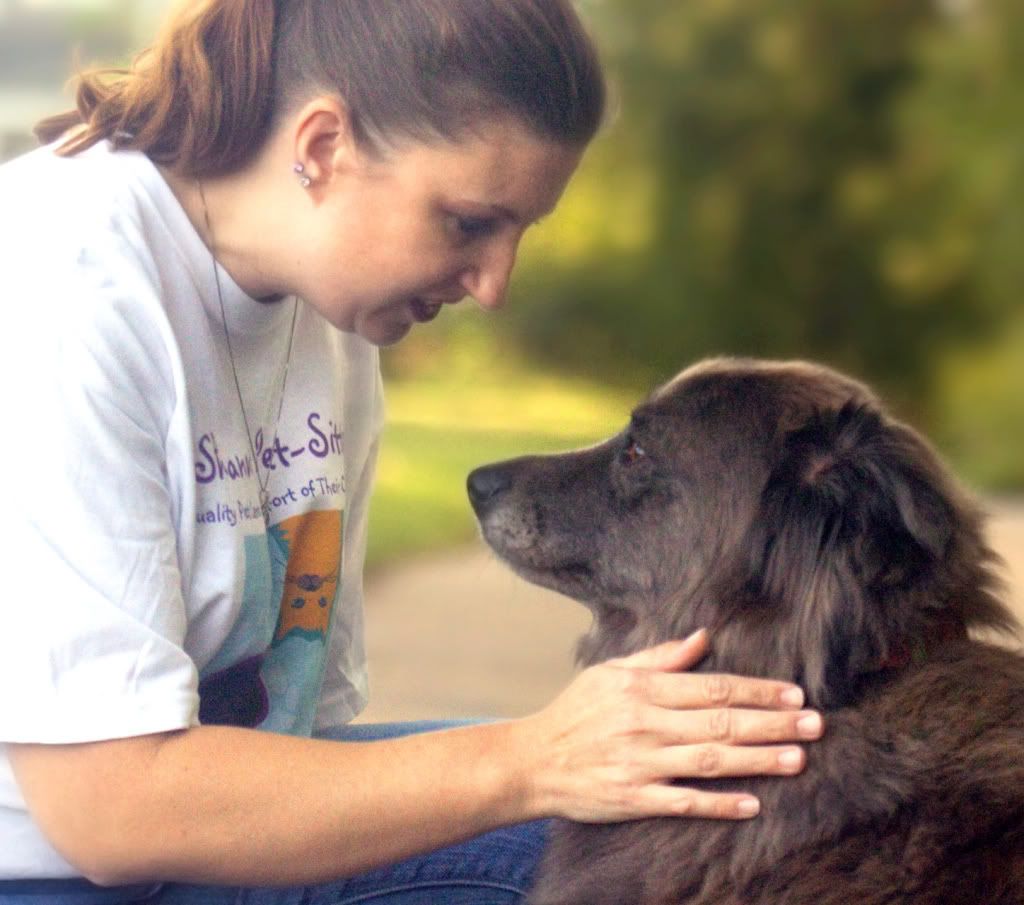Caring for Pets with Behavioral and Medical Needs
Understanding Special Needs Pets

Over the years, many pet-sitters have come across many pets that, for one reason or another, aren’t “normal.” They are “Special Needs Pets” because they have behavioral issues, medical needs, or are senior pets.
Common Behavioral and Medical Issues
Pets can have behavioral issues such as aggression or anxiety. Many develop medical issues and need medication for conditions such as Diabetes, Thyroid disorders, Kidney Failure, or Epilepsy. As pets get older, they also develop issues such as arthritis, sight, and hearing reduction or loss.
Challenges of Finding Care for Special Needs Pets

It is hard enough to be able to leave your pet, but when your pet is a “Special Needs” pet, that makes the task even more difficult. Speaking from personal experience and having a “Special Needs” cat of her own with Kidney Failure, a pet-sitter knows how hard it is trying to find somebody to take care of them, understand their needs, and administer their medication.
Lack of Specialized Pet Care Providers

There are a lot of pet care providers out there who do not have the specialized training and experience in working with and handling the care of these pets. With behavioral issues such as aggression or anxiety, many pet care providers will refuse to take on these pets—either due to the additional time and effort needed or the risk of injury.
Pet-Sitters Commitment to Special Needs Pets
Pet-Sitters welcomes these “Special Needs” pets with open arms. They love the challenge of working with these pets, helping them overcome obstacles, and assisting their owners in coping with their “Special Needs.” Yes, it takes a lot of extra work and patience, but the result at the end of the day is the ultimate reward for her!
Pet-Sitters Expertise and Experience
Pet-Sitters does not claim to be a “trainer” or “veterinarian” by any means. However, having had the opportunity to work with the founders of “Specialized Veterinary Medicine” in Illinois, pet-sitters specialized in internal medicine, cardiology, and emergency medicine in pets.
They obtained a strong medical background as a certified veterinary assistant and have worked closely with many behaviorists and trainers. Pet-Sitters has learned techniques, methods, and ideas that have enabled her to earn the trust and respect of these pets to properly care for them. They knows several methods and “tricks” to medicate pets, behavioral and training methods to work with aggressive, nervous, or shy pets, and have a trained eye to recognize clinical signs and understand senior pets’ abilities and needs.
Preparing for Pet Care

It may take a few visits before your departure for pet-sitters to work with your pet to ensure they are comfortable with their care while you are away. They do not charge extra for the care of these pets unless extra time beyond the standard stop-by or overnight averages is exceeded or necessary. The initial consultation, as always, is free. Any additional visits to your home after the initial consultation to meet with you or work with your pets are subject to the standard stop-by rate.
Requirements for Pet Owners
Pet-Sitters are only willing to work with a pet and its owner under the following circumstances:
- The pet owner MUST be willing to acknowledge, accept, and work to improve or properly care for their pet’s “Special Needs.”

Sometimes, pet owners are unaware that their pet has a “special need.” This is sometimes assessed after they have cared for the pet. In this situation, pet-sitters will bring it to the pet owner’s attention in an understanding and suggestive manner. They will try to educate, make suggestions, and do their best to work out a plan of action with the pet owner. If they feel that the pet owner is not willing or has not taken the necessary steps to work with the pet-sitters and their pet to properly handle their pet’s needs, they will refuse to care for the pet. Pet-Sitters must act in the best interest of the pet and ensure the safety and well-being of all involved in the pet’s care.
Success Stories and References
They are always willing to provide references and share success stories about the “Special Needs” pets they care for! Their owners are also willing to share their experiences of working with pet-sitters and the strides they’ve made together with their pets. After all, their success stories are their success stories!
Philosophy on Pet Care
Pet-Sitters works under the philosophy: “There is no such thing as a bad pet, only bad owners.” Pets do things for a reason. Once you understand and respect their reasoning, you are better able to work together with them.
NOTE: ONLY Pet-Sitters will personally work with pets with aggression issues to avoid putting their pet sitters at risk or in unnecessary danger.

